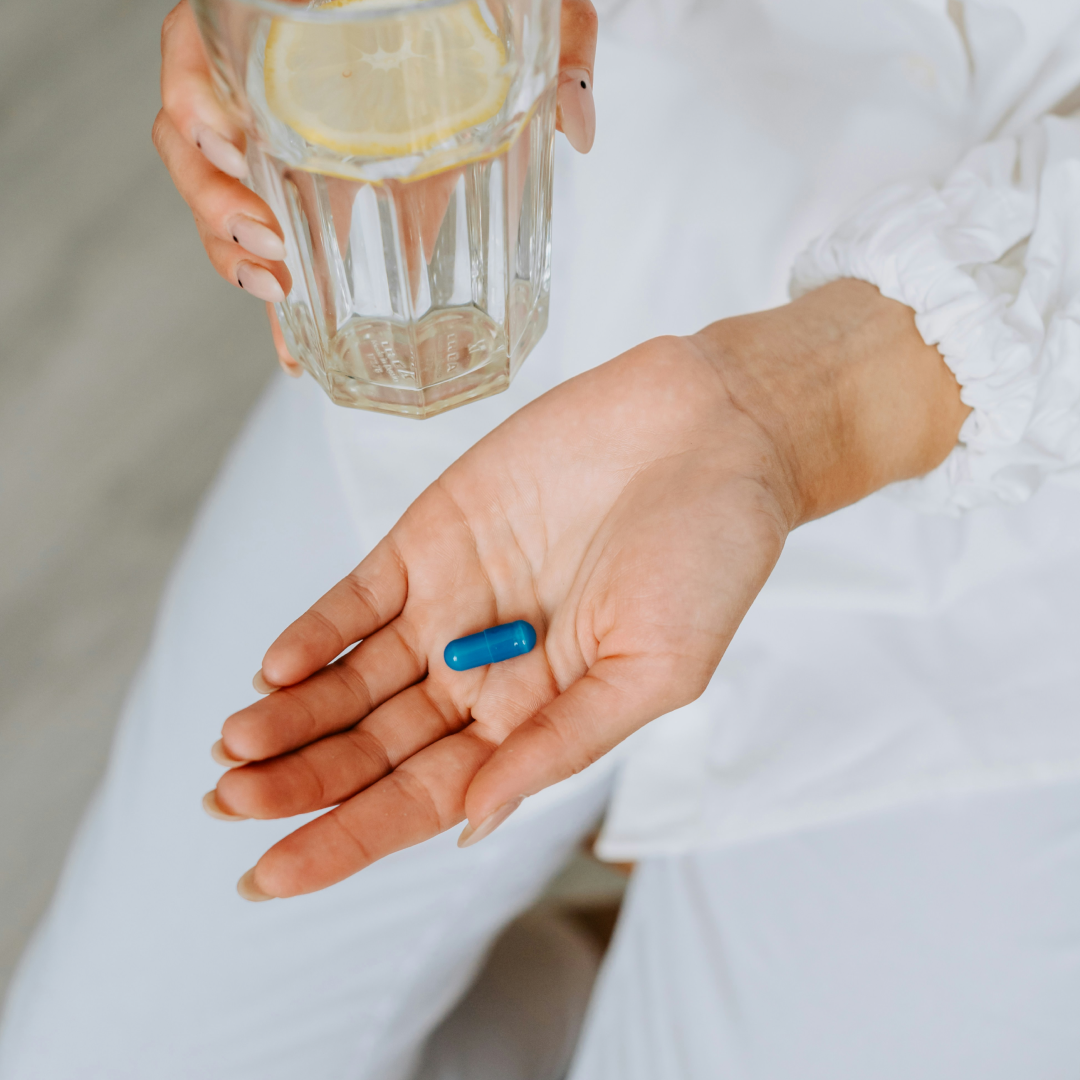Your guide to preconception health
It can be an exciting time when you decide to start trying to get pregnant - a little daunting - but completely normal to have questions. While we always recommend consulting a GP professional for medical advice, there is a lot that you can do at home to start on the right foot. On this page, you’ll find information on how to optimise your health for trying to conceive, as well as advice on how to track ovulation and maximise your chances of success.
1. A focus on nutrition and exercise
Eating a healthy diet and getting enough exercise can make you feel better and have a positive impact on your fertility and overall health.
- Try to eat a balanced diet*. A well-balanced diet can help maintain a healthy weight while providing the appropriate intake of vitamins, fibre and protein, which is beneficial for egg quality. Lean meat, fish, eggs and other sources of protein, and dairy products along with plenty of fruit and vegetables are important for good health throughout life. *If you’re vegetarian or vegan, you need to make sure you get enough iron and vitamin B12, which you can find in dark, leafy greens and fortified in some coconut and soya products.
- Try to maintain a healthy weight. Many people who are underweight or overweight don’t experience problems getting pregnant, but for some, it can take longer. This can be due to hormonal disruptions or ovulation problems. The NICE guidelines recommend having a body mass index (BMI) of between 19 and 30 kg/m2.
- Exercise regularly. Daily exercise can help maintain a healthy weight, increase blood circulation and improve blood sugar levels. This can help increase your energy levels and release feel-good hormones, serotonin and dopamine, which can help combat stress levels.


2. Start taking essential supplements
You should be able to get most of the vitamins and minerals you need by eating a healthy and varied diet. However, there are some things you may need to take in the form of a supplement to ensure you’re getting the nutrients you need while trying for a baby.
- Folic acid. Taking folic acid when trying to conceive and for the first 12 weeks of pregnancy can help prevent certain birth defects. As well as taking a supplement, you can also try to increase your intake of folate, the natural form of folic acid, which can be found in dark, leafy greens.
- Vitamin D. The majority of people will probably obtain sufficient vitamin D from sunlight when they are outdoors. However, from October to March, everyone should consider taking a daily supplement containing 10 micrograms of vitamin D.
- Consider a multivitamin. Supplements don’t replace a healthy diet, however, they can be useful to add to your diet if you think you’re not getting enough nutrients. You might want to consider a multivitamin with iron, vitamin C, calcium and omega-3. Be sure to avoid taking any supplements containing vitamin A, as large amounts can be harmful to you and a growing baby. If you have questions about taking a supplement while trying to get pregnant, please speak to your GP or a pharmacist.


3. Reduce unhealthy habits
If you smoke, drink excessively or take recreational drugs, it can have a negative impact on your hormone balance, ovulation and egg quality. Reducing unhealthy habits can help improve your reproductive health.
- Stop smoking, vaping or using nicotine-containing products. Smoking can increase the risk of heart and lung disease, but it can also lead to problems with fertility. The chemicals found in cigarette smoke can damage the genetic material in eggs and can speed up the loss of eggs. Miscarriage rates and pregnancy complications are also higher in females who smoke compared to non-smokers.
- Stop recreational drug use. Recreational drugs such as cannabis, cocaine and anabolic steroids can interfere with your fertility and cause health complications in a developing baby. Prolonged cannabis use can cause hormone disruptions, which in turn can affect ovulation and can reduce the chances of conceiving.
- Consider reducing alcohol consumption. Excessive drinking can contribute to period problems, like heavy or irregular periods. The general advice is to limit alcohol consumption to 4 units of alcohol or less per week when trying to get pregnant.


4. Start trying to conceive
Once you’ve decided that the time is right for you to start trying, you should stop using contraception and start having regular unprotected sex or perform a home insemination around the time of ovulation.
- Have regular intercourse. Guidelines suggest having sex every 2–3 days to maximise your chances of conceiving, but this isn’t always practical or desirable. If you can, try not to create too much pressure on yourselves and do note – despite some popular myths – no specific sexual position will increase your chances of conceiving.
- Consider tracking ovulation and timing intercourse or insemination. While it’s quite possibly the unsexiest thing around, timing intercourse around ovulation can help increase your chances of conceiving. Ovulation tracking with ovulation tests can help determine when you’re likely to ovulate. Ovulation tests measure the LH (luteinising hormone) levels in your urine. During a regular menstrual cycle, LH will rise approximately 36 hours before ovulation. You should aim to have sex or use the Béa Treatment on the day of your positive ovulation test, as this will increase the chances of the egg and sperm meeting. In general, you should start ovulation testing 17 days before your next period is due and continue testing until you have a positive reading.
- Be mindful of your mental health. If you’ve been planning to have a baby for a while, you may be really excited to finally start trying. With that excitement, there may come some anticipation for it to work as quickly as possible or you may put pressure on yourself and/or your partner. It can be an isolating time for some, as it’s not always easy to talk about with friends or family. You might find it helpful to open up to people you trust (including your partner if you have one), as it can help feel less lonely. (Join our coaching sessions if you want more support!).


If you’re taking contraception
If you use a hormonal method of contraception (the pill, IUD, contraceptive injection, etc.), you might want to consider when is the right time to stop using it. Stopping most contraceptive methods can offer an almost immediate return of fertility – however, it can take a few months for the menstrual cycle to return to normal, which makes it harder to know when you’re ovulating. Making a plan for when to stop taking contraception can be beneficial to when you want to actively start trying to conceive.
Should you visit your GP?
In some cases, you should visit your GP for medical support before trying to get pregnant. This includes:
- If you’re due a cervical smear. Regular cervical smears greatly reduce your chance of getting cervical cancer. It’s better to have the test before pregnancy so you can be treated if any abnormal changes are detected.
- If you need to be vaccinated against rubella. Most of us will have received a vaccine in childhood called MMR that protects against rubella, but if you haven’t, you should get vaccinated before attempting to get pregnant. If you’re unsure, your GP can test to find out if you are immune.
- If you have any long-term medical conditions. If you have any long-term medical conditions such as diabetes, high blood pressure or HIV, make sure to speak with your GP before trying to conceive.
- If you’re regularly taking any medications. Some prescription and over-the-counter medicines can interfere with your fertility or could affect your baby during pregnancy. Don’t stop or start taking any medications without first consulting your GP.
- If you’ve had any cancer treatment in the past. Many chemotherapy drugs damage the reproductive cells during treatment. You may need to visit your GP to discuss what treatment options may be suitable in order to get pregnant.
- If you have or suspect you might have an STI (sexually transmitted infection). STIs are extremely common but most are easily treatable. Chlamydia and gonorrhoea are two of the most common STIs in the UK. Both can be cured with antibiotics, but could lead to fertility problems if left untreated, so it’s important to visit your GP or a sexual health clinic to access tests and treatment if you have or suspect you have an STI.
Want to read our guide on the go?
Sign up to receive our no-nonsense guide to pregnancy in your inbox.
Preconception health FAQs
What about my partner?
Preconception health isn’t just for women. Read our separate guide on improving sperm health.
When should I test for pregnancy?
You can take most pregnancy tests from the first day of a missed period. Pregnancy tests are urine tests that detect a hormone called hCG, which is produced when pregnant. All tests are slightly different, so always check the instructions. The result may not be reliable if you take the test too early. Read our guide on pregnancy testing if you want to learn more!
How long can it take to get pregnant?
It’s natural to want to get pregnant as quickly as possible, but it is impossible to tell how long it will take you to become pregnant, because everyone is unique. On average, 84% of heterosexual couples will conceive within a year if they have regular unprotected intercourse.
When should I seek help?
You should visit your GP if you’re under 36 years old and have been trying to conceive for 1 year. If you have a known medical reason for fertility problems or if you’re over 36 years old, you should visit your GP sooner, as you could get an earlier referral.
How do I prepare for my GP appointment?
GP appointments in the UK can be short, so it’s a good idea to prepare in advance. Take notes on your periods or any symptoms you may be experiencing, how long you’ve been trying to get pregnant and how often you have sex. Your GP may arrange investigations or a referral to a fertility specialist. Ask for another appointment if you need – it’s important you leave your appointments feeling heard, validated and confident about your next steps.
What about private care?
If you can’t or don’t want to go via the NHS, private care is always an option. When you attend a private fertility clinic, you will have a consultation with a fertility doctor who will discuss what treatment options are available and may request additional investigations.
Discover our other guides
Always at Béa



